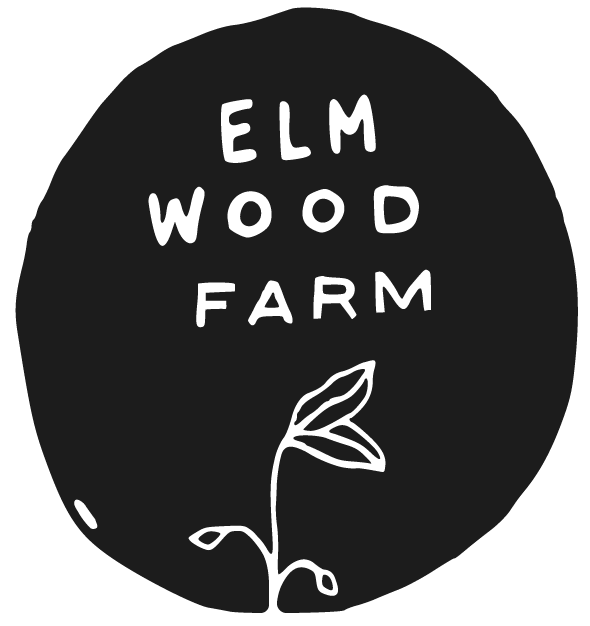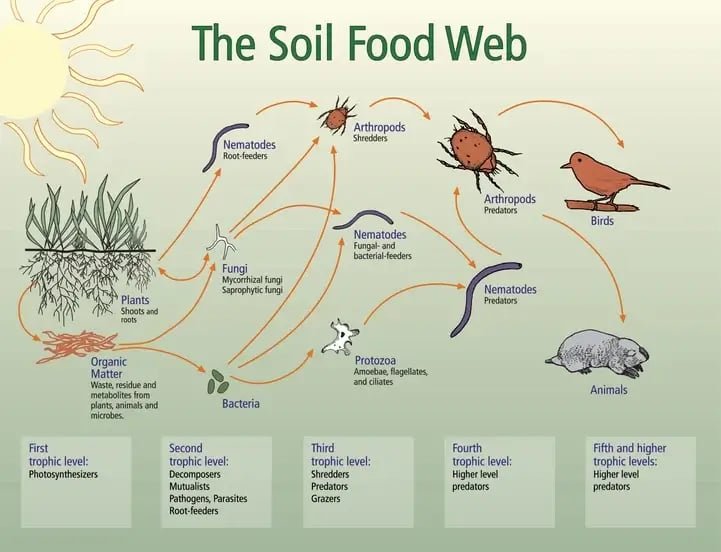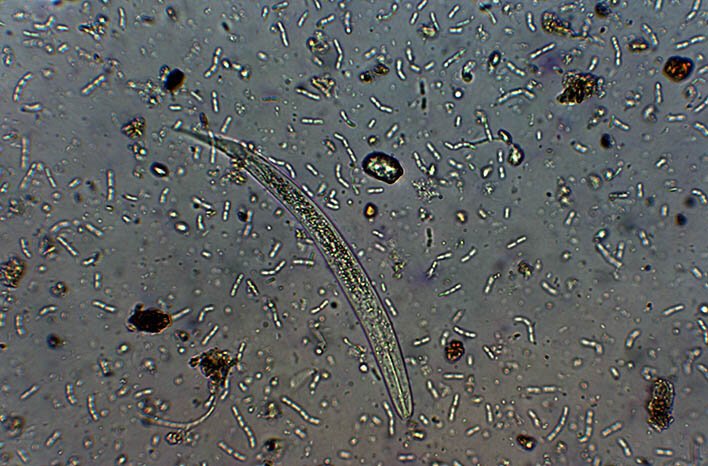Tea Time for Microbes
What makes soil healthy? Or even more basic: what makes the earth under our feet “soil” and not “dirt”? (a four-letter-word around the agricultural and mechanic school where I got my degree).
The answer: Life. The complex interaction of infinitesimal creatures, cycling and recycling. Life that lives in the thin film of water surrounding a grain of sand or silt or clay. That is the world under our feet. And without the churning of life under the surface, we couldn’t exist.
Zooming out even further, solar energy is the driver of all life on Earth. It’s first intercepted by plants, and through their chlorophyll, converted to oxygen, plant tissue, and carbonaceous sugars that are exuded from their roots. These root exudates woo and gather and support a host of microbial life. This host lives in relationship amongst itself.
Grass. Antelope. Lion…
Humus. Fungi. Nematodes…
Much like a food web on the Serengeti, the soil has its own important food web. The “herbivores”, the bacteria and fungi, feed on the root exudates and organic matter. Then a web of “carnivores”, nematodes, arthropods, protozoa, eat the bacteria and fungi, and each other, and return the nutrients back to the system that is continually enriched and increased by the plants continuing their photosynthesis. Microbes convert minerals and nutrients from the soil and from decaying organic matter into forms of nutrients that are available to plants. Key nutrients like nitrogen and phosphorus can not be absorbed by plants in their elemental form, they must be taken apart, reconfigured into something the plant can pull into into itself through its roots, dissolved in that precious film of water covering soil particles.
Compost is a familiar soil amendment to many, and its virtue is almost intuitive. The smell, the color, the texture in your hand tells you that this thing is full of life and full of the things that make plants thrive. Compost tea, made by taking a small amount of compost and “steeping” it with oxygen and additional microbial food, is a similar but different soil amendment. Whereas compost is a balanced, slow-releasing source of nutrients, carbon, and soil biota, compost tea is a concentrated boost of microbes and nutrients suspended in liquid. The intent of the brewing process for compost tea is to boost the numbers of beneficial microbes present in the compost.
It’s like an incubator, taking the community of microbes and feeding it, with plenty of oxygen, so we can create a rich slurry of the Life that provide those nutrient cycling services to plants. Compost tea, then, could be thought of as a probiotic. It certainly provides nutrients, but the true benefit is in the inoculation of the soil with those microbes that will create structure, boost organic matter, increase water holding capacity, water infiltration, and aeration.
We are including compost tea as just one facet of our Soil Health Plan, alongside minimal soil disturbance, animal rotation, compost mulch, and cover crops. Farmers do not grow anything. We feed the soil, we nurture the unseen herd, and it gathers and provides the nutrients to the plants we eat. It inspires humility and patience and observation. It inspires wonder.
We think it’s important at Elmwood Farm to generate our own soil fertility on site. It’s important for financial and ecological sustainability of our operation, and it’s an opportunity for our community to practice conscious consumption. We have the ability to divert our food waste from the landfill and use it to feed our livestock: chickens, pigs, bacteria, fungi, nematodes, earthworms, arthropods. But again, it’s a practice, we’re practicing, so don’t be too hard on yourself if you throw out that peach pit. You ate fresh fruit, you are ahead of me today.
Eric Nystrom is a soil scientist and the culinary director at Elmwood Farm.



